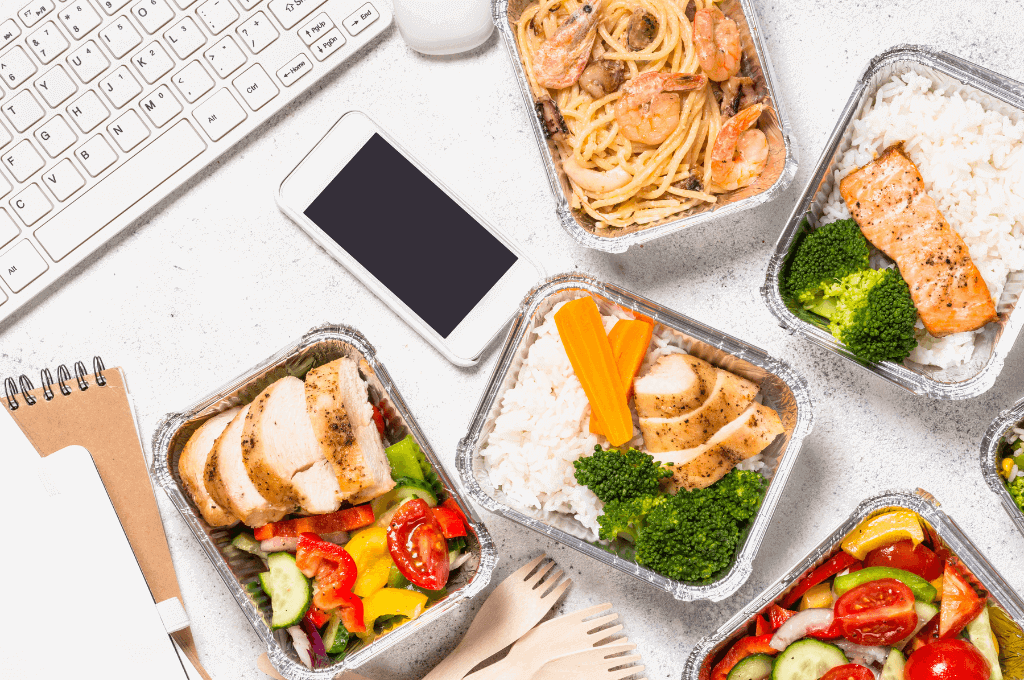Subscription-based business models have been successful in the west, and meal subscription platforms are gaining popularity in India. As per the data by Apollo Research, the Indian healthy meal subscription market value was estimated at $3,732.8 million in the year 2022 and is projected to reach around $13,757.7 million by 2032 with a CAGR of 14%. In India, there is a great potential for meal subscription startups given that only 25 such companies have been established. This allows them to capitalize on an untouched market and gain a competitive advantage.
Advantages of Meal Subscription Platforms
In comparison to cloud kitchens and food aggregators, Meal subscription platforms provide a number of advantages, especially in terms of pricing. They optimize their resources to ensure that consumers don’t have to pay too much money for their services. For example, Swiggy and Zomato use a single rider for each order while startups like Sprink are more efficient with one delivery person serving up to 50-100 orders. To keep the delivery charges cost-effective, this system ensures that customers pay reasonable rates.
In addition to that, subscription-based meal services have the advantage of having a fixed menu. This helps them plan their sourcing needs and meal preparations better since they don’t need to make 100 dishes in small numbers. Instead, they can offer one set meal in large quantities, making it more economical. Meal subscription services offer a convenient way for those who have tight schedules or don’t enjoy cooking. As people with 9-5 jobs have little free time, this saves them from having to take on the chore of preparing meals & helps reduce their stress levels.
Differentiation of Meal Subscription Platforms
What differentiates meal subscription platforms from traditional options is that meals here are curated and personalized based on users’ requirements. Meal subscription services from startups like FoodDarzee provide a lot of healthy options for customers to choose from. All the meals they offer are freshly cooked and can be tailored specifically to dietary preferences such as Keto, vegan, low carb or balanced.
Also Read: Facebook and Instagram Introduce Verification Subscription in Australia and New Zealand
Calorie Care is a 2005 calorie-counted meal subscription entity that offers calorie-counted meals with the help of dieticians and chefs.Meal subscriptions have been growing in popularity, as people look for options with specific calorie requirements. Calorie Care, founded by Cyrus and Parinaz Driver, was the first of its kind and gained traction through word of mouth. Although the brand has moved on, there is still a demand for meal subscriptions in India and startups are taking advantage of this opportunity.
Eating healthy has become easier through Curefoods and their product, EatFit. This platform enables customers to access meal subscriptions from one convenient place. Of all the products and categories offered by Curefoods, it is EatFit which brings the most revenue for them. Cure.fit stands out from other food subscription services because of the variety it offers. If you want to source all your meals from a single brand, Ankit Nagori made sure that there would be more than just 3 or 4 meal options for customers.
Target Customers
Sprink’s co-founder, Kumar Setu, believes that meal subscriptions are mainly proposed for individuals who want to save time when it comes to cooking. Cost-effectiveness is an essential feature for the target customers of this service. Meal subscription platforms primarily target transient population and young professionals who make at least $30,000 per month.
Future of Meal Subscription Market in India
The meal subscription market in India is still in its nascent stages, and the scope for growth is enormous. With the growing awareness about health and wellness among individuals, meal subscription platforms will have a significant role to play in the Indian market. With startups such as Sprink catering to 10,000 meals a day in the city and planning to expand its operations to other cities, the future of meal kits in India looks bright.












